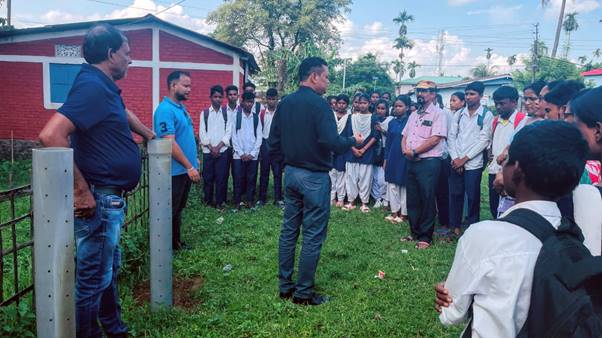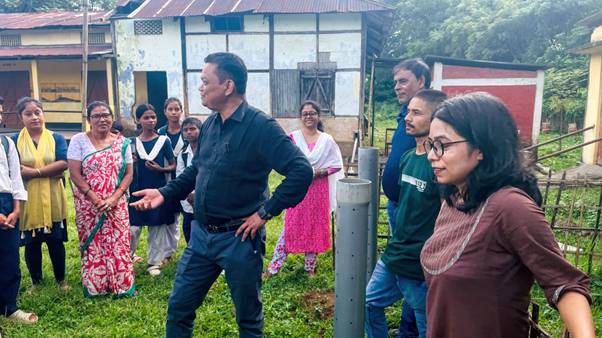
Guwahati: The District Water and Sanitation Committee of Assam’s Biswanath district has been promoting pipe composting as a way of managing biodegradable waste in schools for the waste generated in midday meals for a long time now.
During the ongoing Swachhata Hi Seva campaign, the district officials of Biswanath installed two pipes in Chariali Majaliya ME School for the purpose, and this pipe composting technology, which is a unique way of converting biodegradable waste into manure in two months, has attracted the attention of the state government. Endorsing this simple and effective technology for the disposal of biodegradable waste at the household level, Assam is now actively promoting pipe composting among its rural communities.

Pipe composting technology is a method of converting organic waste into compost using PVC pipes 8 – 10 inches in diameter and 1.25 metres in length. The pipes are placed vertically keeping them 25-30 cm inside the ground. Only degradable waste can be disposed of into the pipes including leftover food, fruit and vegetable peels, flowers, dung, agricultural waste, etc. Once in two weeks a little cow dung and dry leaves are mixed with water and poured inside to accelerate the growth of the worms. This should remain closed so that rainwater does not enter the pipes. Compost manure can be removed by lifting the pipe after 2 months.
Some of the benefits of pipe composting are as follows:
- It converts biodegradable waste into manure within a short time without harming the environment;
- It helps maintain a clean and hygienic environment on the school campus; it is odourless and fly-proof; and it is space efficient.
Moreover, the system is sustainable as the same pipes can be used over and over again. Further, it provides an opportunity for students to learn about the science and ecology of decomposition, the role of microorganisms and invertebrates, and the importance of waste management and sustainability.
– global bihari bureau





